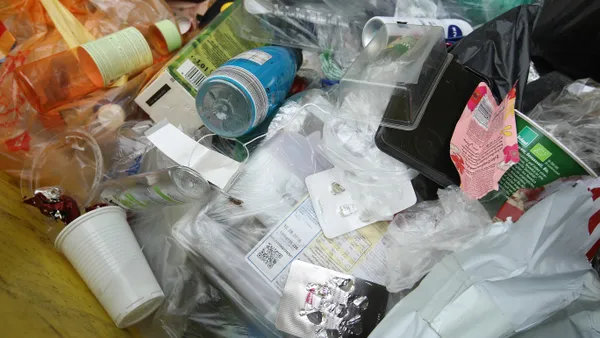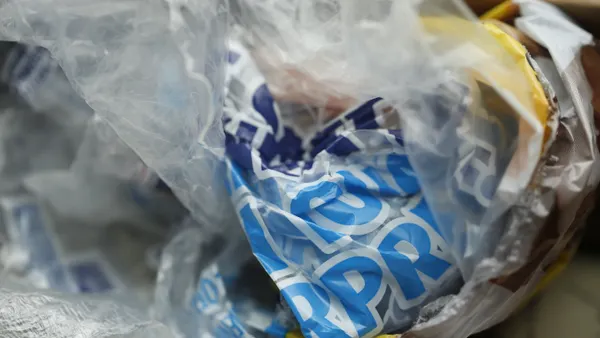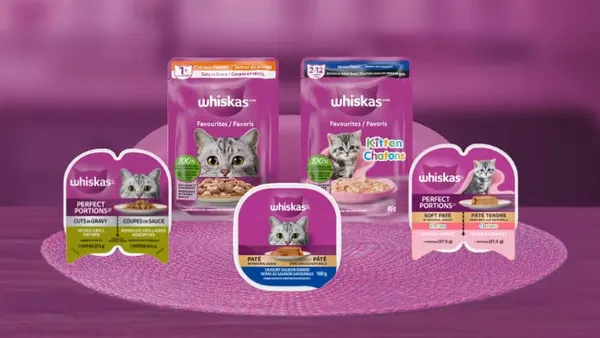Five years after the Solid Waste Association of North America (SWANA) applied to host the International Solid Waste Association (ISWA) World Congress in Baltimore, the groups are finally ramping up a combined WASTECON/ISWA World Congress event — beginning today — which will attract attendees from the U.S. and abroad to Charm City.
"One of the challenges we faced was developing sessions that would attract our traditional North American audience attendees, the European attendees who typically come to ISWA events, and people from developing countries," SWANA CEO David Biderman told Waste Dive.
To get a sense of what to expect from this year's conference, Waste Dive caught up with Biderman on Sept. 22 to hear his insights and predictions.
The following interview has been edited for clarity and brevity.
WASTE DIVE: What aspects of the combined conference are you most excited by?
DAVID BIDERMAN: The thing that I'm most looking forward to is the diversity of the audience that's going to be in Baltimore, and facilitating interactions among people that come from very different cultures and have very different perspectives on waste.
The great thing about WASTECON is that we have, in one place really, much of the expertise about how to upgrade a landfill, how to cite a recycling facility, how to operate more efficiently, how to close dumpsites. Those are the things I'm excited about.
And what about those 'field trips' that are planned to nearby facilities?
BIDERMAN: I'm very excited that we're offering a wide variety of tours and mobile sessions. They're not just visits to traditional waste facilities. There are some of those, but we're also taking people on the water in Baltimore so they can pull marine litter out of the water. We're taking people up to New York City for goodness sake, to visit the former Fresh Kills Landfill, and see how what was once the largest landfill in the United States is being reclaimed as a public park.
Since we're all headed to Baltimore, I have to ask — have you had the opportunity to acquaint yourself with Mr. Trash Wheel?
BIDERMAN: I have seen Mr. Trash Wheel. I'm thrilled not just that others will be seeing Mr. Trash Wheel, but that there's now an additional trash wheel in the harbor.
And I'll tell you, there's some interest overseas in taking the trash wheel technology and using it to address marine litter. There are other cities with polluted where a trash wheel could be a very cost-effective way of addressing marine litter.
How do you see evolving industry attitudes and thoughts toward climate change reflected in this year's conference schedule?
BIDERMAN: Climate change is one of six core topics being discussed. There's a variety of perspectives both in the U.S. and overseas about how the waste industry can reduce its carbon footprint to not contribute to additional climate change. The industry is always interested in being good neighbors. At the most basic level, if the industry is perceived as being polluting, as being a bad actor, it's not good for the facility, it's not good for the employees who work there and it's not good for the owner. I think that companies and local governments want to operate properly, and that includes addressing climate change issues.
I noticed that there weren't any sessions specifically geared toward China's ban on importing scrap. Why is that?
BIDERMAN: Because the China import issue is one that is evolving quickly, it just got on our radar screen in late July, we are not holding a specific session on China. Although, I expect it's to be discussed in several of the keynote sessions as well as the technical sessions.
One of the primary things im interested in doing while I'm in Baltimore is talking to a variety of domestic and international attendees about the impact the ban, should it take effect fully at the end of this year. SWANA is helping to lead the charge, along with ISRI, to advocate to the United States government to take a strong position on this issue.
Are you at the conference in Baltimore? Waste Dive's Cody Boteler and Cole Rosengren are on the ground reporting. Shoot them an email if you're interested in meeting up.









